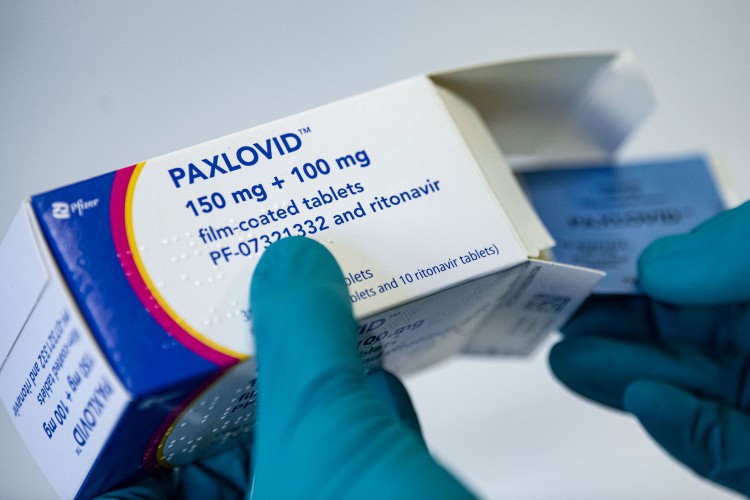
- People with type 2 diabetes are at risk of both cardiovascular disease and chronic kidney disease.
- Those who go into remission from type 2 diabetes for any length of time have lower rates of these diseases.
- Remission may not be possible for everyone with type 2 diabetes, but experts say the lifestyle modifications needed to reach remission will still provide benefits.
People with type 2 diabetes who go into remission for any length of time have lower rates of chronic kidney disease and cardiovascular disease, according to a new study.
The research published this week in the journal Diabetologia reports that people who experienced remission had a 40% lower rate of cardiovascular disease and a 33% lower rate of chronic kidney disease compared with those who lost weight but did not experience remission from type 2 diabetes.
“As the first intervention study to associate remission with reduction of diabetes-related complications, this is encouraging news for those who can achieve remission from type 2 diabetes,” Edward Gregg, PhD, a co-author of the study and a professor in the School of Population Health at the RCSI University of Medicine and Health Sciences in Dublin, Ireland, said in a press statement.
“While our study is also a reminder that maintenance of weight loss and remission is difficult, our findings suggests any success with remission is associated with later health benefits,” he added.
Details from the type 2 diabetes remission study
The researchers examined data from participants in the
The study involved more than 5,000 adults living with type 2 diabetes between the ages of 45 and 76.
After analyzing the results of the Look AHEAD study, the researchers reported that not only did those who experienced remission have a lower rate of cardiovascular disease and chronic kidney disease, but the extent of the reduction in rates of those diseases was largest for those who experienced longer term remission.
People who had remission of at least four years had a 55% reduction in rates of chronic kidney disease and a 49% reduction in rates of cardiovascular disease.
Reaction to the type 2 diabetes and heart disease study
“The results of this are very encouraging. One of the key reasons we aim to control diabetes or to achieve remission of type 2 diabetes is to reduce the risks of its serious complications, such as [chronic kidney disease] and [cardiovascular disease]. However, we do need to bear in mind that although the analysis is done within a clinical trial (Look AHEAD), this was not a trial result and is a non-randomized observational analysis. It is possible that people who are able to achieve remission are also people at inherently lower risk of [cardiovascular disease] and [chronic kidney disease],” Shaw, who was not involved in the study, told Medical News Today.
“We also need to remember that the main results of the Look AHEAD trial were that intensive lifestyle intervention in people with diabetes did not prevent [cardiovascular disease],” he added. “This new analysis suggests that there may have been a small group who did actually benefit from that intervention and this was the group that achieved diabetes remission. This is encouraging but not proof.”
Maintaining remission is challenging
A person is considered in remission from type 2 diabetes if they have normal blood glucose levels without diabetes medications for a period of at least three months.
In their new study, the researchers found that while 11% of people experienced remission after one year of follow-up period, by the 8th year just 4% of were in remission.
Experts say this highlights the challenge for people with type 2 diabetes in keeping weight off.
“To achieve and maintain remission, it’s important to maintain the efforts that were necessary to achieve remission. Often, people are able to use more extreme or specific diets to achieve diabetes remission. For example, many patients do well with ketogenic diets in the short term. However, many of these more restrictive diets are not sustainable long term and it’s really key to find a diet that works and importantly is sustainable long term. If the person stops the diet or regains weight, the diabetes can return. It’s really about adopting a whole new way of approaching food and exercise,” said Dr. Marilyn Tan, a clinical associate professor of medicine specializing in endocrinology at Stanford University School of Medicine in California.
“Diabetes is multifactorial. Diet, weight, and lifestyle are part of the equation,” Tan, who was not involved in the study, told Medical News Today. “However, there are also other risk factors that are not necessarily modifiable. Sometimes, despite best efforts, diabetes may return due to genetics, other medical conditions, medications, and age.”
Any period of time in remission is beneficial
Of those in the study, people who had only had diabetes for a short time, had a low starting level of average blood glucose results, and had experienced significant weight loss were the most likely to go into remission.
However, remission for any amount of time was still found to lower risks of chronic kidney disease and cardiovascular disease.
In the United States, heart disease is the
The longer a person has diabetes, the more likely they are to also have heart disease.
“These are two of the most important consequences of diabetes. Diabetes approximately doubles the risk of [cardiovascular disease]. In almost every country, diabetes is the number one cause of kidney failure,” Shaw said.
He notes that remission may not be possible for every person with type 2 diabetes, but the lifestyle changes needed to get there will still be of benefit.
“Aiming is often great, but it can’t be achieved by everyone, especially among people who have had type 2 diabetes for a long time,” Shaw said. “The possibility of achieving remission is a great motivator for some people, but for others, the changes in lifestyle needed to achieve remission may be too great.”
“Nevertheless, any progress toward a healthy lifestyle and any improvement in diabetes control will be beneficial even if remission is not achieved or not maintained,” he added.
Related pages
Age-related macular degeneration is on the rise. What to know
Share on PinterestExperts say it is important to have your eyesight checked as you get older. Marco

What Is 'Phubbing'? Phone Habit Might Be Ruining Relationships
People who are exposed to perceived phubbing are more likely to experience loneliness or psychologic

Medications Like Ozempic, Wegovy Might Also Improve Sleep
GLP-1 drugs, like Ozempic and Wegovy, may help people sleep better.This is because losing weight can

Is Paxlovid Still Effective Against New COVID Variants?
Paxlovid, an antiviral therapy for COVID-19, remains effective in preventing severe illness from som

Best Exercises to Lower Blood Pressure
New research found that strength training exercises can be more effective at lowering blood pressure

New Alzheimer’s Drugs Show Promise for Patients in Early Stages
Two new drugs from Eli Lilly—Leqembi and donanemab—are showing promising results of slowing Alzheime

